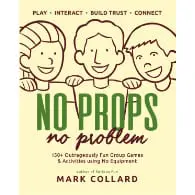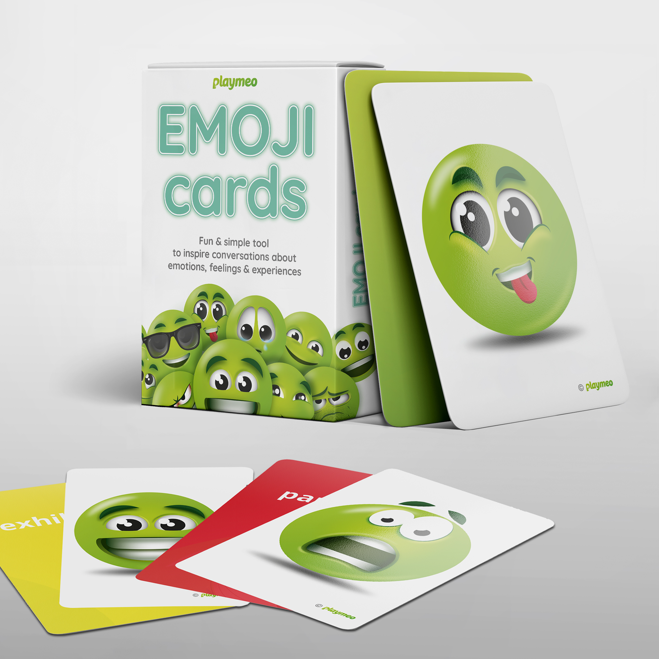20+ Fun & Engaging Ways to Form Random Pairs
So you’ve asked your group to pick a partner so that you can form smaller teams and… they immediately make a beeline to their best…

My friend and mentor, the late Karl Rohnke, shared a quote with me that inspired the whole trajectory of my career:
“A good idea doesn’t care who it belongs to.”
For the longest time, I had always attributed this quote to Karl, because… it just sounded like something he would say. I am sure I have uttered this phrase and connected it to Karl a thousand times over the years.
Then, recently, I discovered the true source of the phrase, as recorded in Karl’s voluminous writings, some of which are only now being uncovered (more on that another time.) The phrase was in fact coined by Plynn Williams, an illustrator of some of Karl’s early books. Karl clearly liked it enough to quote it in his workshops and books.
This new information caused me to stop and reflect…
Broadly speaking, from a legal standpoint, no one can actually own an idea, only the expression thereof. So, for example, the idea of a smartphone can not be owned, but certainly, Apple can copyright their expression of it in the form of an iPhone.
So, when you look at this quote, it is quite accurate – the idea itself does not care who has it because (of course) it does not have feelings. However, humans do have feelings and often care a whole lot about who belongs to what and therefore it is important to acknowledge and respect those folk who create ideas.
As discussed recently with Steve Butler, Karl’s co-author of Quicksilver, we have witnessed many instances of people taking credit for someone else’s ideas, often with unintended or unpleasant consequences.
In short, people do care who has and belongs to an idea.
Take, for example, the people and practitioners of the adventure programming or experiential education field I share.
There are many wonderfully creative people out there, thinking up 100s of new activity ideas and variations all the time. On occasion, I am amazed at how brilliant yet simple the new idea is and wonder why didn’t I think of it myself? But then, sometimes, I think the ‘new’ idea in question is really just a variation of something already in existence belonging to someone else.
I also know of folks who like to “keep their cards close to their chest” because they fear their new idea (or business) will lose something by sharing it. Then there are others who, like Karl, willingly and generously shared whatever they knew, often attributing the source when it was not their own.
To me, this points to the intersection of two thoughts:
I do not think there are any clear-cut or easy answers to these questions, but I am not so naive as to neglect the fact that there is little new under the sun, either.
In regards to the first question, for my purposes, an activity must be significantly different in construct or outcome to another activity to be known by a different (new) name. For example, The Porthole is not the same as the Spider’s Web even though each proffers a similar objective, ie pass a group through a small opening. Whereas you generally end up with a variation if all you have done is adjust the parameters of time, resources, space, obstacles, scenario, etc, of the original activity.
While I admit there is a lot of grey area between new and old, I do not think that simply changing one aspect of an activity and giving it a different name makes it ‘new.’
Then, in my efforts to draw a line in the sand to respect the dignity of the second question, I can say that every activity featured in playmeo’s online database (of 500+ activities) is acknowledged in at least 2 ways – the source of the idea (often a person, book or video) and the author whose expression of the activity contributed the content.
Are my responses reasonable?
I’m sitting in enquiry, so I wonder what you may think.
Login and share in the comments below…

Best-selling book featuring 150+ fun group games & activities. Scan QR codes to access digital content including videos.

Brand new deck of cards featuring emoji images to help you inspire conversations about emotions, feelings & experiences.
Download our free 28-page ebook jam-packed with outrageously fun activity ideas.
Just one more question:
We offer a range of membership plans with no surprises.
Click an option below & discover our simple pricing.

Click here if you’re a:

Click here if you represent a:
Explore plans for
10, 50, 200 or more
potential users
Interesting discussion. I really like the idea that the idea doesn’t care who owns it. Sometimes I care too much about the idea, checking to see how great the idea is and how alone I am in this world. And up to this date I have not invented much. Maybe the infinite question – a question with dots in it, so the interviewer can complete the question according to the situation and the relation. The infinite question builds on the infinite sentence. So it is just a twist. Example: The best about this workshop is … – and the infinite question is bit more tricky: What is in your opinion the … about …
In two places there are dots, so offer the interviewer some air. Give him or her time to complete, like we also do about the interviewee.
This idea led to a product with 160 different bilingual dialogue cards in a box. We call them Infinite Questions and Appreciations.
Recently I came up with another idea. I still think it is new, never seen it before and it is very valuable. This is ok for a start. So I formed the words I needed, got it designed and ready for print. Out came The Team Coaching Carpet. The story behind this carpet was that I often end up with groups of people standing in a circle where they need a script for what to say to one another or more. For my idea I decided to include 3 types of questions and sentences.
What do you think when you see this? The star is where the focus person stands and outside the carpet is where the teammates circle up. This is the help a team gets. No facilitator needed. Only for the introduction. As an idea its fine. But I cannot secure it. Everyone can steal it and print their own carpet. It’s illegal. But it is so easy to do. I have tested the carpet and it works absolutely fine.
Its my idea but the idea does not care. This is so correct.
Thanks for sharing your thoughts on this topic, Michael. Thanks also for sharing links to your two latest ideas, well done.
Brilliant article, Mark. It pokes a healthy hole in our amygdala driven to own or protect things. But “ownership” is quite an interesting concept in and of itself. You can imagine native peoples’ confusion and even perhaps cultural disgust when immigrants to the “United States” started buying and selling and owning land. How could somebody own a piece of Earth?
Anyway, coming “down to earth” a little bit…I think being intentional to attribute your source is both noble and important. As for the playmeo way of acknowledging TWO sources, bonus points. I’ve found myself often saying “I heard this from ____ and they probably heard it from somebody who heard it from somebody who adapted it from somebody else. ” On and on. I actually think acknowledging the unknown level of depth and history of “source” is a nice way to pay homage to the idea and steer clear of taking toooo much credit for something that has been evolving since long before any of us were alive.
What’s the alternative to this intentional, but efficient method of attribution…doing a 2-hour historical deep dive dissertation project on every idea/activity/quote you ever share? It’s both unreasonable and unproductive in my opinion. The idea (if it had a conscious) would much rather be roaming the world making a difference than being held up in a long processing line until it was determined eligible to make a difference in the world.
Thanks for the ponderings, mate! Always love things together. Synchronously or asynchronously.
Thanks for your note Chad. I believe we stand on the shoulders of many giants when it comes to attribution of the ideas, skills and knowledge that we wend in the world. Forever grateful.
So glad to see this pop up. Thanks Mark for the spark! I’ve been bantering with others on this topic as applied in the adventure activity realm for years – perhaps dating back to my first publishing foray with the Project Adventure newsletter, Zip Lines, in the 1990’s. That was when I first met Rufus Collinson – working with Rufus as my editor was a poetic blessing I’ll never forget… But getting to the point: I agree that making the effort of attribution, as Mark has with Playmeo activities, is very important. To me it is less about the legality of copyright law and more about respecting others innovative thinking, acknowledging that one’s work derives from a broader universe, and how it also imbues the author with a little humility. So, when I see attributions in the framing or notes my respect-meter for the author rises. On the other hand when there is no attribution with activities narratives clearly cut and paste from another source, my opinion of the author and its affiliated institution sinks. I remember sitting in a PA office about 10 years ago flipping through a recent activity book publication by a well known (unmentioned here) youth development specialist who had clearly pulled a lot of content from PA publications yet had made absolutely no mention of PA. Maybe I’m a little stubborn but to this day I think lesser of that author all while acknowledging he also made many important contributions to his field and the book was indeed an important resource for many.
I get it, Larry. Like you, I see a lack of respect in a few spaces we occupy and it irks me. Indeed, most recently, I recall a corporate training entity that (somehow) trademarked the use of the term “trust-building” and advised playmeo to stop using it! My reaction was posted in the IGGA FB Group, and Rich Maizell responded with a wonderful article about generativity.